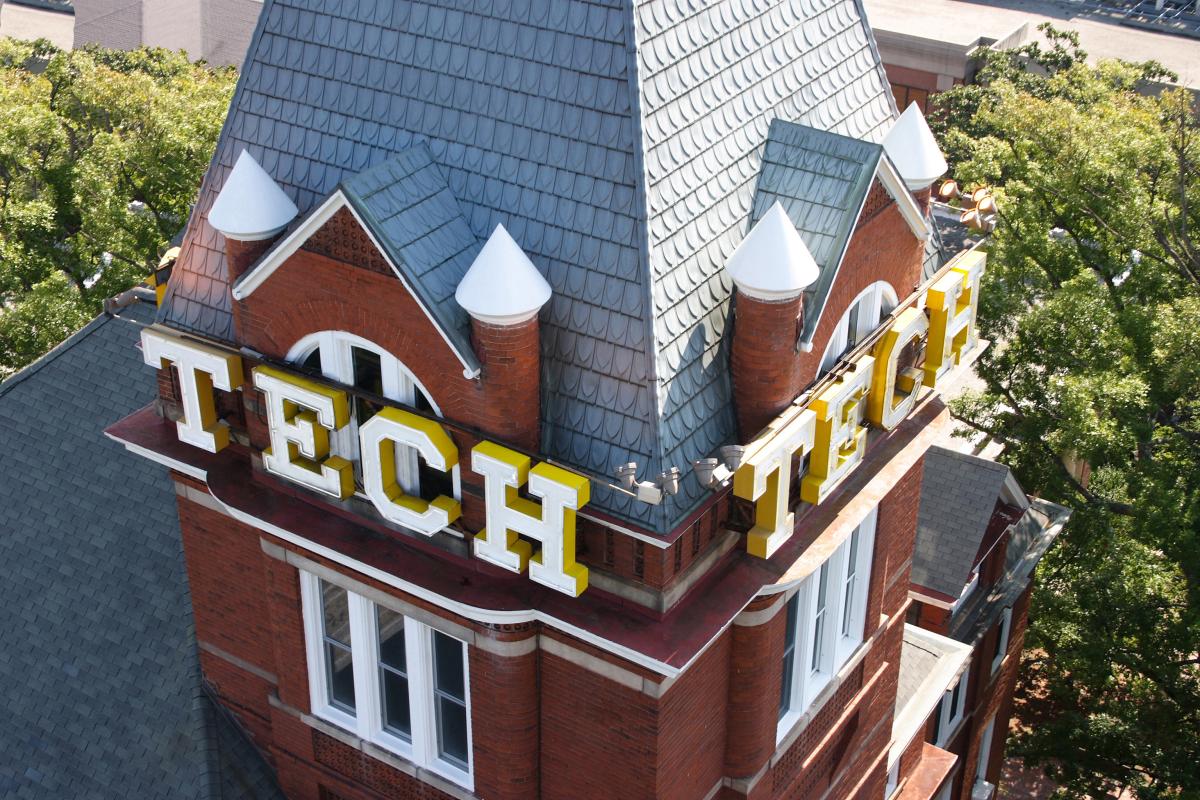
Nico Van Duijn
What started as a social outlet ten years ago is now opening a pathway to the 2016 Summer Olympics for electrical engineering major Nico Van Duijn. Van Duijn, who is originally from Switzerland, started swimming purely for fun. He joined a club team near his hometown of Zurich that was casual and leisure-focused with an abundance of games and horseplay.
As the years progressed and Van Duijn grew closer to his teammates, the team slowly moved to competitive swimming. “I had always enjoyed measuring myself against others and making a competition out of nearly every aspect of my life. Swimming was the perfect match,” explained Van Duijn.
Van Duijn’s competitive spirit helps to motivate him as he juggles his current role as an ECE student with training and competing for both the Georgia Tech Varsity Swim Team and the Swiss National Team.
“Swimming is one of the most time-intensive sports when it is exercised on an internationally competitive level. It is not uncommon for world-class swimmers to practice over 30 hours per week, which makes the 20-hour limit by the NCAA look pretty easy,” he explains.
Couple the time demands of training and travel for competitions with the rigor of a full class load and it’s a wonder Van Duijn can keep up with either. But he knows that dedication and lack of sleep now could later mean a spot on the Swiss Olympic Swim Team.
Still, he holds no illusion that professional swimming will be his bread and butter. “Sadly, it is almost impossible to make money swimming. There are very few individuals like Michael Phelps or Ryan Lochte who make more than the bare minimum to pay for their expenses,” said Van Duijn.
So the plan is that graduate school will follow soon after his bachelor’s degree is awarded, but first, more swimming and a push toward Rio.
Jimmy Sutehall
Jimmy Sutehall understands what it means to be thankful for each day. When he was a freshman in high school, he was diagnosed with an astrocytoma brain tumor. After surgery to remove the tumor, his short-term memory and ability to walk were affected. Although the procedure was a success, Sutehall essentially had to relearn how to learn. Now a student in ECE, he maintains a 4.0 GPA and credits his illness and recovery with providing useful perspective and strength.
“It broke me in a lot of ways, but it also allowed me to be rebuilt. There have been times at Georgia Tech when life has been hectic, stressful, and tough,” said Sutehall. “But even in the hardest times, I always remember this: as long as I can breathe, walk, and talk, I don’t have any reason to complain.”
These days, his experience beating the brain tumor drives him to help others. Every spring break, Sutehall takes a mission trip to Nicaragua through Amigos for Christ, an organization that brings clean drinking water to Nicaraguans, and the Georgia Tech Catholic Center. His time spent digging ditches, installing solar panels for wells, and wiring electrical panels has taught him about the inherent goodness of engineering.
“I saw firsthand the ways that engineering can be used to help others and save lives. I hope to continue to use engineering to save lives, both through mission trips and the job I have after graduation,” said Sutehall.
Upon graduation, the electrical engineering major plans to start working full time with L-3 Mustang Technology as an algorithm engineer, but first he’ll spend time hiking Hadrian’s Wall in England and completing the Camino de Santiago pilgrimage in Spain.
Olivia Wasdin
A switch from basketball to volleyball in 8th grade propelled Olivia Wasdin to pursue her number one passion and she is not looking back. And while volleyball may be her top priority, her studies in electrical engineering take a close second. In fact, volleyball and electrical engineering have played a delicate dance throughout her undergraduate years with one influencing the other at every turn.
Wasdin chose to pursue electrical engineering because of its broad nature and exciting possibilities. She said, “I think electricity is awesome. It’s powerful, it’s dangerous, and it’s everywhere. I couldn’t imagine pursuing another major.”
Although Wasdin knew she was studying the right subject, she still felt lost during her first year and a half at Tech. She only began to hit her stride once she realized that competitive academics didn’t motivate her in the same way as competitive volleyball.
She got involved with a club volleyball team made up of other female Tech students and was president of the club for three years. During this time, Wasdin had to learn how to become her own strength and conditioning coach and engage in high-level training, all while balancing school and a part-time job.
As a student, her school projects go hand in hand with her love of sports. Inspired by countless hours at the gym, her team project for Senior Design is a “Weightlifting Energy Harvesting System” that harvests mechanical energy from a cable weightlifting machine and uses it to charge batteries and power a fitness tracking system.
After graduation, Wasdin will enter an M.B.A. program at Savannah State University and play on the Savannah State Athletics Women’s Volleyball Team. Beyond that, she’ll try to join a professional volleyball league overseas. “I wake up every day to get one step closer to my goal of playing professional volleyball,” she said.
But what if the stars don’t align after all? Wasdin is unfazed. “What’s a better backup plan than an EE degree from Tech?”